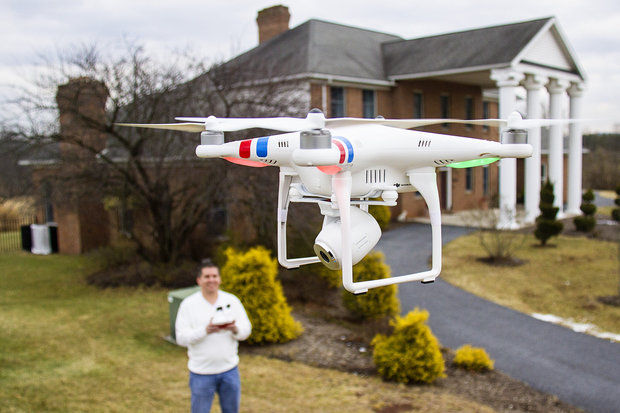- info@rpaclaims.com
- Mon-Fri: 9am to 7pm
Drone Roof Inspections
Reliable Property Adjusting, Inc. (RPA) has found a solution for inspecting steep roofs, high roofs, and overall dangerous roofs here in New England. Any property adjuster who works in the New England states can express their frustration when attempting to inspect some of the most difficult roofs in this part of the country. It is not uncommon to find a three story duplex in the city or a steep roof with a 9/12 pitch out in the country. This presents a challenge when a roof claim arises and a roof inspection is needed. Most insurance companies have resorted to hiring a roofing company to provide a “ladder assist” to either get a roofer or an adjuster on the roof. Then that individual has to then try and get good photos and sometimes measurements of the entire area. Most ladder assists only include providing a ladder and securing it to the home allowing for the adjuster to climb up to the roof and take their own photos and hopefully measurements. If the roof is too steep some adjusters won’t actually climb the roof, so the photos are limited to odd angle shots taken from the edge. The typical “ladder assist” also runs $150 – 250 depending on the company and location.
Enter the drone! Due to the drastic improvements in battery technology in recent years, drones have gained popularity. These small radio-controlled multi-copters are now able to carry the extra weight of a small HD camera. Also with a built-in GPS computer chip, they fly to specific coordinates, hold a position, and take HD video or HD photos. In most cases, the pilot can let go of the controls and the drone will maintain it’s position, correcting itself for wind and staying just where they left it! This means that those tall or steep roofs can now be viewed from the air at a cost equal or lower than what it costs to hire a roofer.
All of our pilots are licensed with the Federal Aviation Administration (FAA) under the new FAR Part 107 rules for Small Unmanned Aircraft Systems (sUAS). This allows them to legally do this type of commercial work under the oversight of the FAA. We also carry a $1m liability policy that it is in force during aerial operations. Under special request, we can also name any client as a temporary named insured during the period that we are flying for them. What really sets apart, however, is that our pilots are also licensed Private Pilots for full-size aircraft, so they have additional knowledge of laws, airspace, and most things aviation.
COSTS:
| $160 | Roof Drone Inspection (no measurements) |
| $175 | Roof Drone Inspection with EagleView report and measurements **Most popular** |
| $275 | Property Drone Inspection (no measurements) |
| $300 | Property Drone Inspection with EagleView report and measurements |
Each roof inspection includes a minimum of 10 photos with no limit on the total. This inspection will include broad views of all slopes and close up views of any damage. If measurements are requested, we simply add in an EagleView report with satellite imagery and their measurements. Neither the drone nor the drone pilot measures the roof.
Property inspections are slightly different than the roof inspections and are best suited for claims involving a fire loss to a home or severe weather damage to the entire property. With these inspections, the drone pilot attempts to get photos from various angles of the entire property. These would include broad views and close up views of any damages. They would include close up views of the roof IF the roof has damage. Otherwise, the roof would not be focused on any differently than other parts of the property. The insurance company may request us to focus on any specific location.
*Note that some inspections require an additional travel fee if the distance is far from our main office in Old Saybrook, Connecticut.
ADVANTAGES FOR DRONE ROOF INSPECTIONS:
- Easy access to view all parts of the roof from various angles that may not be possible any other way
- All parts of the roof can be viewed without any limitations (most cases)
- Photo quality is significantly better than when an adjuster or roofer takes photos on the roof
- Clear documentation helps settle claims quickly and fairly
- Drones aren’t afraid of steep roofs or climbing a ladder
- Drones don’t slip off roofs resulting in workers compensation claims
- Drones don’t damage shingles or roof tiles
- Drones will not bend gutters or damage wood trim from ladders/tools/ropes
DISADVANTAGES
- Drones cannot be flown in severe weather. (Usually, winds over 15 mph are too difficult to handle)
- Drones cannot be flown too close to trees or power lines
- Drones can’t measure a roof (not yet). However, RPA utilizes satellite measuring technology to fill this gap
- By law, drones cannot be flown within close proximity of an airport

